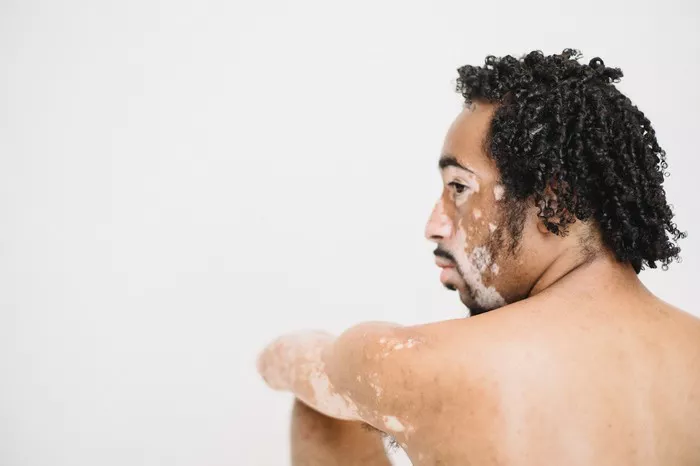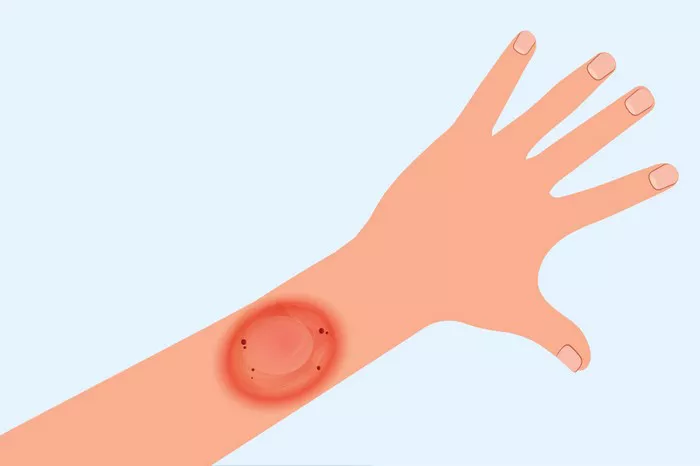Vitiligo is a long-term condition characterized by the loss of pigment in certain areas of the skin, leading to the appearance of white patches. This depigmentation occurs when the melanocytes, the cells responsible for producing melanin, die or stop functioning. While vitiligo primarily affects the skin, it can also impact hair. Understanding how vitiligo affects hair involves exploring the biological mechanisms behind the condition, its manifestation in hair, and the psychological and social implications for those affected.
The Biological Mechanisms of Vitiligo
Vitiligo is an autoimmune disorder where the body’s immune system mistakenly attacks melanocytes. These cells are responsible for producing melanin, the pigment that gives color to the skin, hair, and eyes. The exact cause of this immune response is still not fully understood, but genetic factors, oxidative stress, and environmental triggers are believed to play a role.
1. Genetic Predisposition: Research has shown that individuals with a family history of vitiligo are more likely to develop the condition, suggesting a genetic component. Certain genes associated with the immune system and melanocyte function have been identified as risk factors.
2. Oxidative Stress: Oxidative stress refers to the imbalance between free radicals and antioxidants in the body. In vitiligo, oxidative stress is thought to damage melanocytes, leading to their destruction or dysfunction.
3. Environmental Triggers: Various environmental factors, such as exposure to certain chemicals, sunburn, or even emotional stress, may trigger or exacerbate vitiligo in genetically predisposed individuals.
Manifestation of Vitiligo in Hair
Vitiligo can affect hair in several ways, leading to changes in both color and texture. The impact on hair can vary depending on the extent and location of depigmentation.
1. Poliosis: Poliosis refers to the appearance of white or gray hair in localized patches. This occurs when melanocytes in the hair follicles are destroyed or rendered inactive. Poliosis can affect any hair-bearing area of the body, including the scalp, eyebrows, eyelashes, and body hair.
2. Diffuse Hair Whitening: In some cases, vitiligo may cause a more widespread depigmentation of hair, resulting in diffuse whitening. This can be particularly noticeable on the scalp, where patches of white hair can be interspersed with normally pigmented hair.
3. Changes in Hair Texture: While less common, some individuals with vitiligo may experience changes in hair texture. This can include hair becoming finer, more brittle, or prone to breakage. These changes are likely due to the disruption of normal melanocyte function and the associated impact on hair follicle health.
Psychological and Social Implications
The impact of vitiligo on hair, particularly when it affects visible areas such as the scalp, eyebrows, and eyelashes, can have significant psychological and social implications for those affected.
1. Self-Esteem and Body Image: Hair is often considered a key aspect of personal identity and self-expression. Changes in hair color or texture due to vitiligo can lead to feelings of self-consciousness and decreased self-esteem. Individuals may feel that their appearance is altered in a way that makes them stand out or look different from others.
2. Social Interactions: Visible changes in hair can affect social interactions and relationships. People with vitiligo may experience unwanted attention, questions, or even stigmatization from others. This can lead to social withdrawal, anxiety, and a reluctance to engage in social activities.
3. Coping Mechanisms and Support: Coping with the psychological impact of vitiligo often involves a combination of personal strategies and external support. Some individuals find comfort in cosmetic solutions such as hair dyes or makeup to cover depigmented areas. Others may seek support from friends, family, or support groups where they can share experiences and find understanding.
SEE ALSO: Is Vitiligo Skin More Sensitive?
Treatment and Management Options
While there is currently no cure for vitiligo, several treatment options can help manage its effects on hair and improve the appearance of depigmented areas.
1. Topical Treatments: Corticosteroids and calcineurin inhibitors are commonly prescribed topical treatments that can help reduce inflammation and stimulate repigmentation in some cases. These treatments are typically more effective in early-stage vitiligo and when applied to smaller areas of depigmentation.
2. Phototherapy: Phototherapy, or light therapy, involves exposing the skin to ultraviolet (UV) light under medical supervision. Narrowband UVB phototherapy is a commonly used method that can promote repigmentation by stimulating melanocyte activity. This treatment can be effective for both skin and hair depigmentation.
3. Hair Dye: For those who prefer a cosmetic approach, hair dye can be a simple and effective way to cover white or gray hair caused by vitiligo. It is important to choose dyes that are gentle and free from harsh chemicals to avoid further irritation or damage to the scalp and hair.
4. Camouflage Techniques: Specialized makeup products and concealers designed for vitiligo can help cover depigmented areas on the scalp, eyebrows, and eyelashes. These products are often waterproof and long-lasting, providing a temporary solution for improving appearance.
5. Surgical Options: In cases where vitiligo affects small, stable areas, surgical treatments such as melanocyte transplantation or skin grafting may be considered. These procedures involve transplanting healthy melanocytes to depigmented areas, promoting repigmentation.
Living with Vitiligo
Living with vitiligo requires a multifaceted approach that addresses both the physical and emotional aspects of the condition. Here are some strategies for managing vitiligo and maintaining overall well-being:
1. Education and Awareness: Understanding the nature of vitiligo and staying informed about the latest research and treatment options can empower individuals to make informed decisions about their care. Educating friends, family, and the community about vitiligo can also help reduce stigma and promote acceptance.
2. Healthy Lifestyle: Maintaining a healthy lifestyle can support overall well-being and potentially improve the management of vitiligo. This includes eating a balanced diet rich in antioxidants, staying hydrated, getting regular exercise, and managing stress through relaxation techniques or hobbies.
3. Skin and Hair Care: Taking good care of the skin and hair can help minimize the impact of vitiligo and maintain their health. This includes using gentle, non-irritating skin and hair care products, protecting the skin from excessive sun exposure with sunscreen and protective clothing, and avoiding harsh chemicals or treatments that could exacerbate depigmentation.
4. Emotional Support: Seeking emotional support from loved ones, support groups, or mental health professionals can be invaluable in coping with the psychological impact of vitiligo. Sharing experiences and feelings with others who understand can provide comfort, encouragement, and practical advice.
Conclusion
Vitiligo’s impact on hair extends beyond the physical changes in color and texture, affecting psychological well-being and social interactions. Understanding the biological mechanisms behind vitiligo, recognizing its manifestation in hair, and exploring various treatment and management options can help individuals cope with the condition more effectively. By promoting awareness and providing support, we can help those affected by vitiligo maintain a positive self-image and lead fulfilling lives.
Related Topics:


























